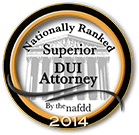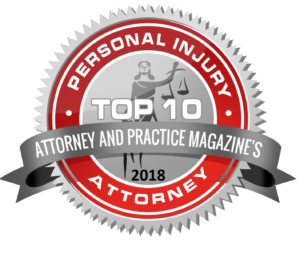When someone experiences a car accident in Virginia, one of the most common injuries that can arise is whiplash. This neck injury can cause pain, stiffness, and other symptoms that may limit a person’s ability to go about their normal daily activities. Often, proving that someone else was responsible for this injury is essential to receiving fair compensation. Yet, it can be a complex process to demonstrate that another driver’s actions directly led to a whiplash injury. To do so, gathering the right kind of evidence and understanding Virginia’s specific legal rules can make a significant difference. Here, we explore what’s important in proving liability in whiplash cases in Virginia and what steps are needed to support a strong claim. At, NovaLegalGroup, P.C., we are here to guide you through the legal process and help you navigate the complexities of your case.

Understanding Whiplash and How It Happens
Whiplash is an injury that usually happens when a person’s head is suddenly jerked backward and then forward, causing the neck to extend beyond its usual range of motion. This motion can stretch and strain the muscles and ligaments in the neck. In car accidents, whiplash is most common in rear-end collisions, as the force from behind often pushes the neck in a snap-like motion.
People with whiplash might experience different symptoms. Pain, tenderness, reduced movement in the neck, and headaches are frequent issues. Sometimes, the symptoms of whiplash don’t show up immediately. Instead, they might develop in the hours or days after the accident. Because of this delay, people may not recognize the seriousness of the injury right away. But if these symptoms last or become worse, they can affect a person’s quality of life and ability to work. Therefore, proving that the injury was caused by someone else is important in order to recover the costs of treatment, lost income, and any other losses.
The Importance of Evidence in Proving Whiplash Cases
To succeed in a whiplash case, it’s crucial to gather strong evidence that shows how the accident happened and how it resulted in injury. In Virginia, the burden of proof falls on the injured person, which means they have to provide convincing evidence to show that the other party was at fault. Evidence can come in many forms, but some common types are police reports, medical records, witness statements, and photographs from the accident scene.
Police reports can offer a detailed account of the accident. Officers at the scene usually record how the accident occurred and may note details such as the position of the vehicles, visible damage, and initial observations about the cause of the crash. Medical records are also critical, as they document the injury and its connection to the accident. When a person seeks medical attention shortly after an accident, the doctor’s records help link the whiplash injury to the incident. Witnesses can add valuable information as well, especially if they saw how the accident unfolded or heard statements from the drivers. Photographs of the accident site and vehicle damage can show the severity of the crash, which supports the claim that such a collision would likely result in whiplash.
Proving Fault
Virginia follows a legal rule known as contributory negligence, which can make it harder for accident victims to recover damages. Under contributory negligence, if the injured person is found to be even slightly responsible for the accident, they may be unable to collect any compensation. This rule makes proving fault in a whiplash case especially important, as the injured party must show that they had no role in causing the accident.
For example, if the other driver was speeding or driving carelessly, their behavior can be considered negligent. However, if the injured person was also speeding or not paying full attention at the time of the crash, this could impact their ability to recover compensation. In whiplash cases, gathering evidence that clearly points to the other driver’s fault is essential to avoid any reduction in compensation due to contributory negligence.
Medical Documentation and Its Role in Whiplash Cases
Medical records play a major role in proving liability in whiplash cases. The records should show that the injury was directly connected to the accident, as insurance companies often look for reasons to challenge these claims. It’s helpful for the injured person to visit a doctor as soon as possible after the accident to get an official diagnosis. The doctor can confirm the injury and explain how it is related to the accident.
Sometimes, additional diagnostic tests, such as X-rays or MRIs, may be necessary to confirm the injury. These tests can show damage to the soft tissues in the neck and help prevent the insurance company from denying the injury. Without medical records that tie the whiplash to the car accident, proving liability can become much harder, so it’s beneficial to have these records as soon as possible.
The Role of Witnesses in Strengthening a Whiplash Claim
Witnesses can provide valuable support in a whiplash case, as their statements may confirm that the other driver was at fault. For instance, a witness might testify that they saw the other driver speeding, swerving, or showing other signs of careless driving before the collision. A statement from a witness who was present at the scene can reinforce the injured person’s account of what happened.
In some cases, witnesses, such as medical professionals, can also play a part. While their input may not be essential in every case, a medical specialist can describe how the accident would have caused the whiplash injury, adding strength to the claim. Witnesses’ statements, especially when consistent with other evidence, can make a big difference in proving that the other driver was responsible for the injury.
Choosing a Personal Injury Attorney Personal Injury Case TimelineRelated Videos
How Insurance Companies Evaluate Whiplash Cases
In Virginia, insurance companies often handle whiplash claims by closely examining the evidence. They may look at the severity of the accident, the injured person’s medical records, and any other documentation to determine if they believe the claim is valid. Insurance companies sometimes argue that whiplash is a minor injury or suggest that the injury was pre-existing and not caused by the recent accident. To combat this, a strong collection of evidence can help establish that the injury happened in the accident and that it has a real impact on the person’s life.
In addition, it’s important to be cautious when speaking to insurance adjusters. They may ask questions in ways that seem friendly but are actually designed to gather information that could weaken the claim. It can be wise to seek legal advice before speaking with the insurance company, as they are motivated to pay as little as possible on claims.
Settlement Negotiations and Going to Court
In many cases, whiplash claims can be settled through negotiations with the insurance company. Settling can save time and money compared to going to court, but it’s essential to be sure that any settlement offer fairly covers all medical expenses, lost income, and other losses. However, if the insurance company denies the claim or offers a low amount that doesn’t cover the costs, taking the case to court may become necessary.
If a whiplash case goes to trial, the injured person’s attorney must present all gathered evidence and may also call on witnesses to testify. The goal is to show that the other driver’s actions caused the injury and that the injured person deserves compensation. Although going to court can be a longer and more challenging process, it may lead to a more favorable outcome if the evidence supports the injured person’s claim.
If you have suffered a whiplash injury in Virginia, proving liability can be a complex and challenging task, but it’s essential to securing the compensation you deserve. An attorney can assist with every step of the process, from gathering evidence to negotiating with insurance companies, ensuring your rights are protected. NovaLegalGroup, P.C. understands the unique difficulties that come with whiplash cases and can help you navigate Virginia’s contributory negligence laws and prove the fault of the other driver.
Reaching out to our team can make a significant difference in your case. We are here to help you build a strong claim that addresses all aspects of your injury and losses. Let us support you in proving liability and holding the responsible party accountable so you can focus on your recovery. Contact NovaLegalGroup, P.C. today to discuss your case and explore your options for moving forward.










